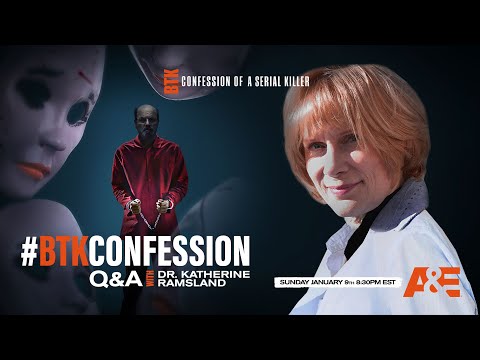BTK Killer: “I’m A Good Person Who Did Some Bad Things” – Stunning New A&E Documentary Chronicles Murders, New Insights On Motive

NEW YORK, NY – Dennis Rader – infamously known as the BTK killer, an abbreviation he gave himself for “bind, torture, kill” – is the subject of a new documentary, in which he acknowledges himself not only as a “monster,” but also a “good person who did some bad things.”
In A&E’s “BTK: Confession of a Serial Killer,” Rader, now 76, converses with a psychologist about motivations behind his killing of 10 people between 1974 and 1991 – driven by sexual fantasies and a fascination with bondage – to which he pled guilty to in 2005 and is currently serving ten consecutive life sentences at El Dorado Correctional Facility in Kansas.
During his killing spree, Rader – who collected stamps and served as the president of his church – murdered ten people in Wichita and Park City, Kansas, and sent letters to authorities and the media, taunting them with details of his crimes. After the letters ceased for ten years, Rader resumed sending them in 2004, which enabled police to finally track him down and place him under arrest in 2005.
The psychologist in the new A&E documentary, Dr. Katherine Ramsland, has a decade of history with Rader; she began to write with him, speak to him on the phone, and occasionally visit him in prison starting in 2010.
Based on her interactions with Rader, Dr. Ramsland said that the former Wichita resident is atypical for a compulsive murderer, pointing out that he was married with two children, an active member of his community, and had no history of abuse.
“Dennis Rader challenges the idea we have about serial killers. He was a family man. He was a churchgoer, even a president of his church congregation. He had a full-time job. He was part of his community,” she said. “In Dennis’ case, there wasn’t any particular reason in his background. No trauma. He was an all-American boy, the oldest of four boys in his family. He had an intact family and played on his farm. So where did it all come from?”
Dr. Ramsland was asked if Rader saw himself as a monster, to which she replied yes, but also noted that he also saw himself as a victim once he had been arrested.
“Dennis Rader does think of himself as a monster, but he also thinks of himself as a good person who did some bad things,” she said. “He will talk about a monster in his brain. It’s his ‘Factor X,’ which is a way to distance himself from criminal responsibility. He thinks, for the most part, he’s not a monster. He certainly was in those instances when he selected a victim and carried through with his crimes. But overall, he doesn’t think of himself that way.”




Comments are closed.